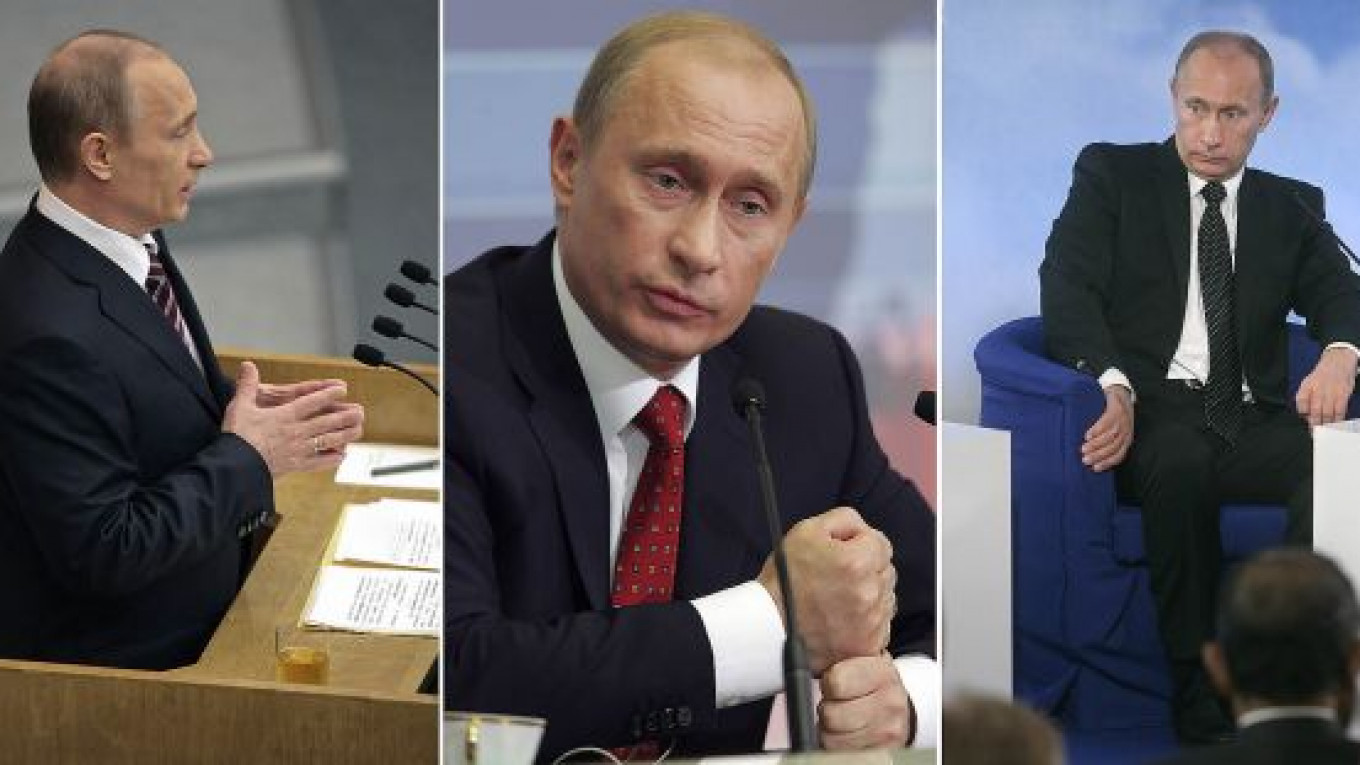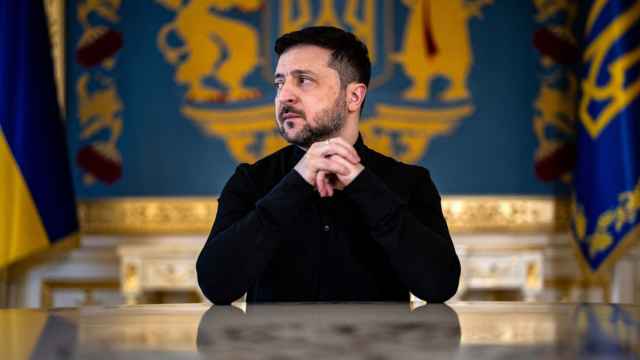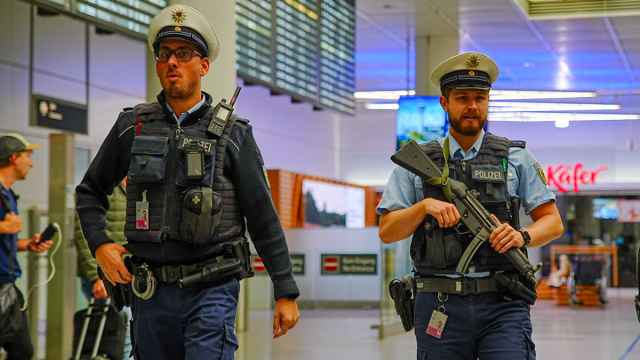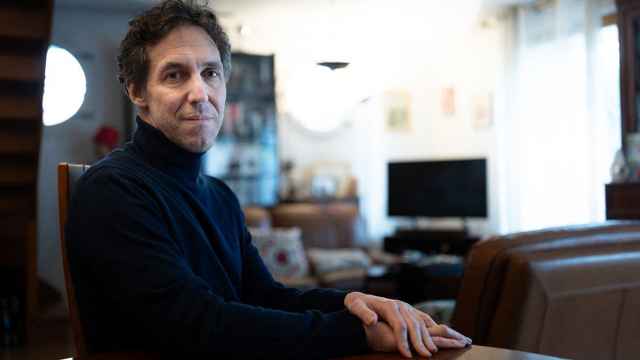VORONEZH — If any foreigner deserves credit for President Vladimir Putin's rise to power, then perhaps it is Allan Pease, an Australian authority on body language who calls Putin "a very clever and capable student."
Pease, a best-selling author who is known internationally as "Mr. Body Language," first met the future president in 1991 when he was invited to the Kremlin to host a seminar for up-and-coming politicians including Putin, then a 39-year-old former KGB officer responsible for promoting international relations and foreign investments at St. Petersburg City Hall.
Also at the seminar was Putin's boss, St. Petersburg Mayor Anatoly Sobchak.
"At that time, our entourage was seven people, and everyone looked rude and severe, carrying guns. It was both scary and exciting," Pease, who at 61 is the same age as Putin, said in an interview.
"I taught them how to look friendlier on television and how to exclude aggressive gestures. Mr. Putin, the assistant to the mayor of St. Petersburg at that time, was a very clever and capable student, by the way," he said.
Dissecting Putin to gain insight into his thinking has been a key challenge of Kremlinologists, foreign governments and ordinary people for the 13 years that he has been in power. Known for a fierce desire for privacy, Putin has been both admired and belittled for his stolid face, sparing hand movements and firm, steady gaze.
But Pease, who recalled his encounter with Putin while conducting a seminar in Voronezh this month, offered praise for the Kremlin leader's gestures and facial expressions, noting that 60 to 80 percent of a message is conveyed via body language during face-to-face meetings.
"I paid attention to him at the very first meeting with Sobchak," Pease said. "When he entered the room, everyone went quiet. All the audience knew he served at the KGB. I understood it as well. Spies have special preparation and talent."
The first thing that Pease said he taught Putin was to ditch the aggressive gestures favored by Soviet-era politicians. The gestures, which included flailing arms and thumbing fists, might be best remembered in Soviet leader Nikita Khrushchev's outburst at the United Nations General Assembly in 1960 when he protested a speech by pounding his delegate-desk with a shoe.
Instead of resorting to such gesticulations, Pease said, "palms need to be held open or collected in a gesture called 'a raised steeple.' Both give you confidence."
These days, Putin commonly uses both gestures during public speeches and Kremlin meetings. Pease said he once saw Putin using the "raised steeple" to great effect during a meeting with U.S. President George W. Bush in the 2000s. "Bush, in comparison with Putin, was beyond recovery, so to say, and Putin behaved quietly and confidently, holding his palms in a raised steeple," he said. "He might even have been thinking about fishing at that very moment."
Pease said Putin has another "golden rule" that he deploys with great success in one-on-one conversations with other world leaders: He slightly tilts his head to one side and nods to the person he is talking to.
"Research has shown that a consecutive group of three nods of the head forces the person whom you are listening to to keep on speaking," Pease said. "Therefore, he or she understands that you are interested in the conversation."
Pease knows what he is talking about. The son of an insurance salesman, he started watching his father's sale pitches as a child before joining him in the industry and, at the age of 21, becoming the youngest person ever to sell more than $1 million of life insurance in his first sales year, according to his official biography. In the 1960s, Pease wrote training manuals on how to understand people's behavior, and he turned the material into a best-selling book called "Body Language" in 1981. The book was followed by nine more No. 1 best-sellers, and Pease counts among his former clients the likes of IBM, McDonald's, the BBC, Mazda and Suzuki.
This month marked Pease's first trip back to Russia since 1991 for a speaking tour that encompassed Moscow, St. Petersburg, Surgut, Pyatigorsk and Voronezh. He wrapped up the trip last weekend with seminars in Minsk and Almaty, Kazakhstan.
"Today Russia is a much safer place, while Russian fans are really enthusiastic and a lot of fun," he said.
Despite the warm words for Putin, Pease said that Putin did bring one trait to the 1991 seminar that he has never changed: his “Soviet face.”"There is one specific piece of body language used by Russians, mostly men, and by no other nations. That is a Soviet face, Mr. Putin's specialty," Pease said.
"The older you are, the more often you use this," he said. "Instead of smiling like Europeans or Americans, you fasten your lips and frown, 'Hello, I am your friend, you can trust me.'
"Actually, with that type of face you mask your feelings. It is understandable, because in the previous era it could be harmful for your health to show your emotions right in the street."
Curiously, people in many cultures once adopted this stolid expression for self-survival — and they also enjoyed other forms of body language that were unique to their cultures, Pease said.
But a drastic change has swept the world over the past 40 years, and the gestures in almost all countries have become alike: open palms, smiles and flashing eyebrows.
"Why so?" Pease said. "Because adults watch Hollywood movies, and kids prefer American cartoons to those produced in their states, where they take and copy body language from."
Contact the author at [email protected]
A Message from The Moscow Times:
Dear readers,
We are facing unprecedented challenges. Russia's Prosecutor General's Office has designated The Moscow Times as an "undesirable" organization, criminalizing our work and putting our staff at risk of prosecution. This follows our earlier unjust labeling as a "foreign agent."
These actions are direct attempts to silence independent journalism in Russia. The authorities claim our work "discredits the decisions of the Russian leadership." We see things differently: we strive to provide accurate, unbiased reporting on Russia.
We, the journalists of The Moscow Times, refuse to be silenced. But to continue our work, we need your help.
Your support, no matter how small, makes a world of difference. If you can, please support us monthly starting from just $2. It's quick to set up, and every contribution makes a significant impact.
By supporting The Moscow Times, you're defending open, independent journalism in the face of repression. Thank you for standing with us.
Remind me later.






